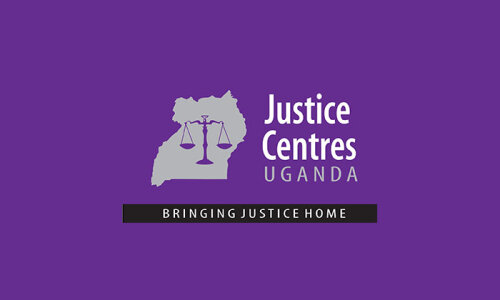Best Arrests & Searches Lawyers in Uganda
Share your needs with us, get contacted by law firms.
Free. Takes 2 min.
Or refine your search by selecting a city:
List of the best lawyers in Uganda
About Arrests & Searches Law in Uganda
In Uganda, the laws governing arrests and searches are primarily contained within the Constitution of Uganda, the Criminal Procedure Code, and specific Acts such as the Police Act. These laws outline the procedures and protocols that law enforcement must follow to ensure that the rights of individuals are protected while upholding justice and maintaining public order. The legal framework is designed to balance individual freedoms with the need for effective law enforcement.
Why You May Need a Lawyer
Engaging a lawyer can be crucial in several scenarios related to arrests and searches, including:
- If you or someone you know is arrested and you need guidance on the legality of the arrest procedure.
- If you believe that a search conducted on your property was unlawful or violated your rights.
- When you are charged with an offense and require legal representation to ensure a fair trial.
- If you seek to file a complaint against unlawful arrest or search conducted by law enforcement.
- If you are a witness and you feel compelled to provide information unlawfully.
Having a lawyer can help navigate these situations by providing expert advice, protecting your rights, and representing your interests in legal proceedings.
Local Laws Overview
Understanding the local laws on arrests and searches in Uganda involves familiarity with key legal principles, including:
- Arrest Warrants: Law enforcement officers generally require a warrant to arrest an individual unless the arrest is done during the commission of a crime, or they have reasonable cause to believe that an individual has committed or is about to commit a crime.
- Search Warrants: Searches typically require a warrant issued by a competent court, ensuring that privacy rights are respected. Exceptions may apply in cases of urgency or if obtaining a warrant could lead to the loss of evidence.
- Rights of the Arrested: An individual who is arrested must be informed of the reason for the arrest, the right to remain silent, and the right to legal representation.
- Detention Periods: The laws stipulate specific maximum periods that an individual can be held without charge, after which they must be released or brought before a court.
- Admissibility of Evidence: Evidence obtained through unlawful searches may be inadmissible in court, which can significantly affect the outcome of a case.
Frequently Asked Questions
What should I do if I'm arrested?
Stay calm, and immediately request to speak with a lawyer. Do not resist arrest, as doing so can lead to additional charges.
Can the police search my home without a warrant?
Generally, a search warrant is required. However, searches without a warrant are permissible under certain exceptions, such as during hot pursuit or with your consent.
What rights do I have when being searched?
During a search, you have the right to understand the reason for the search and to have a witness present. You must be treated with respect and dignity.
How long can I be detained without being charged?
The Constitution of Uganda mandates that an individual must be brought before a competent court within 48 hours of arrest.
What can I do if I believe my arrest was unlawful?
You can file a complaint with the Professional Standards Unit of the Uganda Police Force and seek legal advice for possible court action.
Are there specific rights for juveniles during arrest and search?
Yes, juveniles have specific protections, including the presence of a parent or guardian during questioning and representation by a lawyer or social worker.
Can evidence obtained illegally be used against me?
Evidence obtained through illegal means is generally inadmissible in court, except in rare situations where it can be justified by the court.
What is considered reasonable suspicion for a search?
Reasonable suspicion is based on the belief, grounded in objective facts, that a person is involved in criminal activity. It cannot be based merely on hunches or stereotypes.
Do I have to consent to a search if the police do not have a warrant?
No, you have the right to refuse consent to a search if the police do not have a warrant; however, it should be noted that police can conduct a search without your consent under specific circumstances established by law.
Can I record my interaction with the police?
Recording public interactions with law enforcement is generally allowed, but be sure to inform the officers and do not obstruct their duties while doing so.
Additional Resources
Consider reaching out to the following resources for assistance:
- Legal Aid Providers in Uganda for free or affordable legal services.
- The Uganda Police Force, specifically the Professional Standards Unit for complaints against police conduct.
- Uganda Human Rights Commission for issues related to human rights violations.
- Local NGOs such as the Legal Aid Clinic of the Uganda Law Society, which provide support and guidance.
Next Steps
If you require legal assistance related to arrests and searches, consider taking the following steps:
- Contact a qualified lawyer with experience in criminal law to discuss your situation in detail.
- Gather all relevant documents and evidence that may be pertinent to your case.
- If immediately necessary, visit local legal aid clinics or organizations for guidance and initial support.
- Prepare to provide your lawyer with an accurate account of events leading to and following your arrest or search.
Taking swift action by seeking legal advice can significantly impact the resolution of your matter.
Lawzana helps you find the best lawyers and law firms in Uganda through a curated and pre-screened list of qualified legal professionals. Our platform offers rankings and detailed profiles of attorneys and law firms, allowing you to compare based on practice areas, including Arrests & Searches, experience, and client feedback.
Each profile includes a description of the firm's areas of practice, client reviews, team members and partners, year of establishment, spoken languages, office locations, contact information, social media presence, and any published articles or resources. Most firms on our platform speak English and are experienced in both local and international legal matters.
Get a quote from top-rated law firms in Uganda — quickly, securely, and without unnecessary hassle.
Disclaimer:
The information provided on this page is for general informational purposes only and does not constitute legal advice. While we strive to ensure the accuracy and relevance of the content, legal information may change over time, and interpretations of the law can vary. You should always consult with a qualified legal professional for advice specific to your situation.
We disclaim all liability for actions taken or not taken based on the content of this page. If you believe any information is incorrect or outdated, please contact us, and we will review and update it where appropriate.
Browse arrests & searches law firms by city in Uganda
Refine your search by selecting a city.















